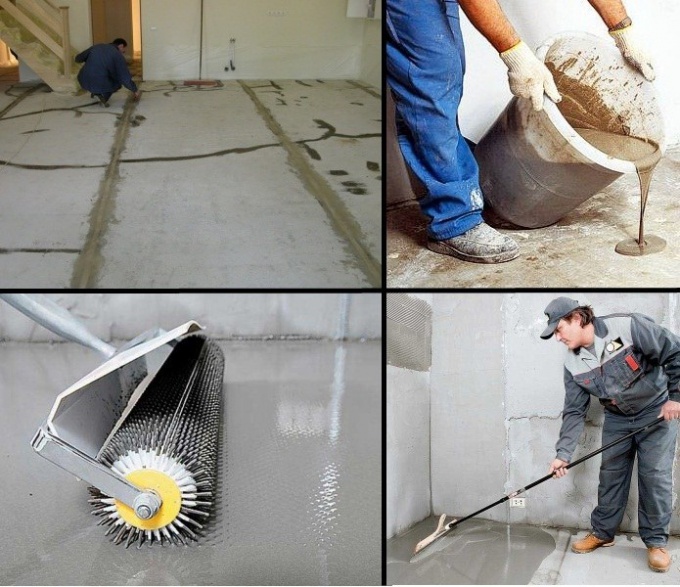You will need
- - cement-sand mortar;
- - spatula;
- - primer material;
- - drill (malabarista);
- - nozzle-mixer;
- - a needle roller;
- - usually installed with a special strap.
Instruction
1
Do a thorough preparation before fabrication of bulk (liquid) floor in the room on their own. It consists of several stages.
2
Prepare the surface for pouring self-leveling floor. Prepare the necessary tools and acquire the necessary material.
3
Repaired all the potholes and cracks in the preparatory phase of the cement-sand mortar. to do this, use a spatula. The surface must be dry, since the polymer floor to dry is afraid of water. Its components able to join her in response.
4
Check the building level horizontal floor. If it does not match, align the surface of the cement-sand mortar, i.e. to make the screed. This will significantly reduce the consumption of expensive material.
5
Treat the prepared surface of the undercoat material at least twice.Prepare the required amount of liquid of the mixture, based on the calculation: at a layer thickness of 1 cm at 1 m floor require 10 kg of dry mix.
6
Use to prepare the solution using an electric drill equipped with a speed controller and a mixer. Self-leveling floor screed is a cement-based, polymer additives. It can practically spread on their own, creating a smooth and fairly durable surface.
7
The final stage is a direct application of self-leveling floor on a prepared surface. It will then be perfectly flat and smooth. Pour polymeric composition self-leveling floor surface after it has dried from the soil.
8
Evenly distribute the polymer composition in the plane of the rule, removing a needle roller emerging air bubbles. Adjust the thickness of the layer of the special plate (from 1 to 7 cm) mounted on the rule.
Note
You need to work indoors at temperature from five to twenty-five degrees. The humidity should be 60%, otherwise the floor will dry long.
Useful advice
Avoid direct sunlight on the polymer floor when dry.
